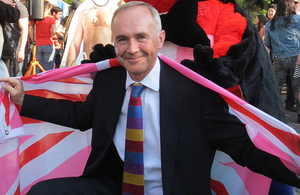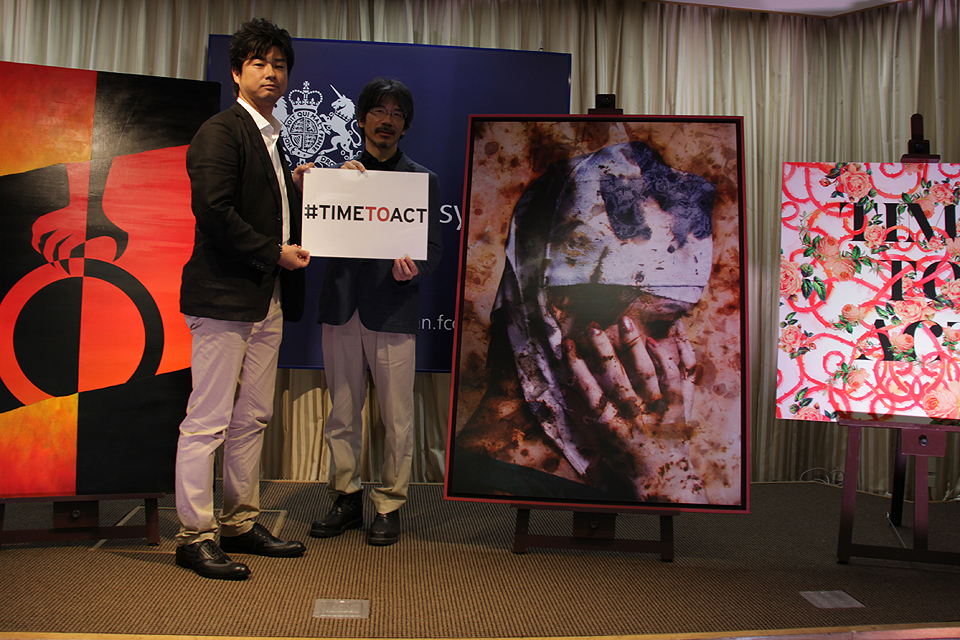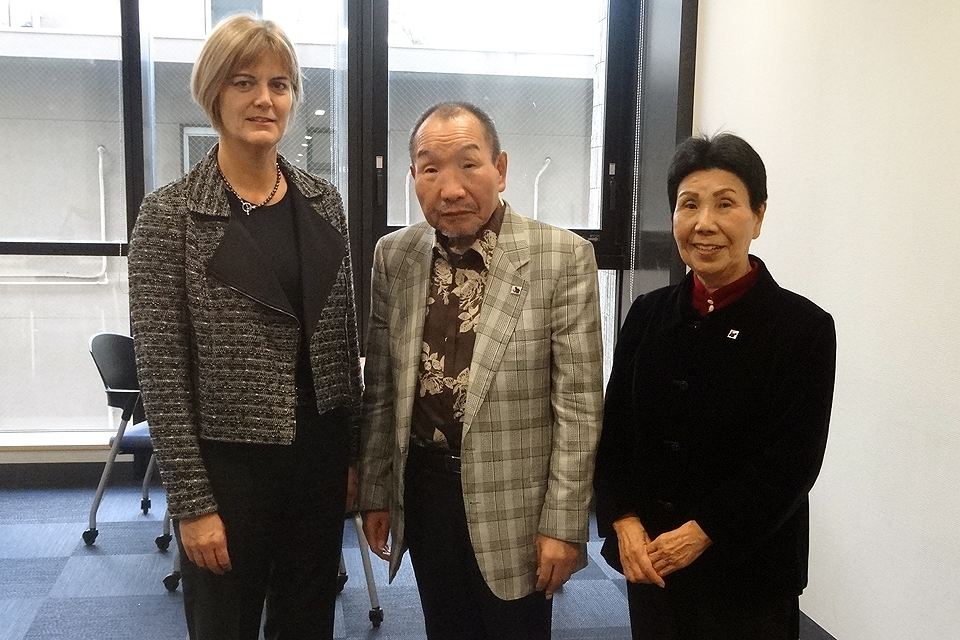Celebrating UN Human Rights Day 2014 in Japan
Today on UN Human Rights Day 2014, we are proud to look back on a busy year, working to further human rights on a broad range of issues.

Ambassador Tim Hitchens celebrating LGBT rights at the Tokyo Rainbow Parade 2014
This year, we have worked with and in Japan, both directly and with other international partners. Our activities have included: celebrating same sex marriage; raising awareness on preventing sexual violence against women; working with Japan on wider international issues; and continuing to call for the abolition of the death penalty in Japan.
LGBT equality
In April, the British Embassy attended the annual Tokyo Rainbow Pride 2014, as part of the ‘Love is GREAT’ campaign to promote the UK as a welcoming tourism destination for all visitors. Ambassador Tim Hitchens delivered a speech to the crowds in Yoyogi Park, saying: “Life for LGBT people has changed a lot in Britain over the past few decades. As a society, we weren’t always so open or accepting. But now I’m very proud to say I am British. At the end of last month gay marriage became legal in England and Wales. It shows that we are a country that will continue to honour its proud traditions of respect, tolerance and equal worth.” Since the change of UK law in March, the Embassy has also been delighted to host two same-sex marriages involving British nationals.
Preventing Sexual Violence Initiative (PSVI)
2014 was a watershed year for PSVI, culminating in the international Summit in London in June which grabbed media attention from all over the world. Drawing on the energy created by the Summit, the Embassy in Tokyo curated an exhibition by local artists of works that were inspired by the testimonies of victims of sexual violence. Japan has been an important international partner. On the ‘International Day for the Elimination of Violence Against Women’ last month marking the beginning of 16 days of activism, Minister Julia Longbottom from the British Embassy spoke at an event at Sophia University co-hosted by the Japanese government and the International Committee of the Red Cross. It was attended by students, civil society and academia. Minister Longbottom promoted the UK-designed International Protocol (PSVI) as a tool for reporting and prosecuting potential war crimes; and spoke about the importance of strong leadership from all G7 nations to keep up the momentum on the successes achieved so far.

Artists exhibiting their work inspired by the ‘Time to Act’ campaign, as part of a special PSVI exhibition at the Embassy
Wider international collaboration
Japan has continued to be a leader and partner on a range of other global human rights issues. Japan hosted the successful first World Assembly for Women (WAW!) Summit on gender equality in September. 2014 also saw Japan bring the Hague Convention on the Civil Aspects of International Child Abduction into effect. We are also proud of our long record of voting with Japan on a majority of human rights issues in international organisations – including most recently with Japan on the North Korea human rights resolution that it sponsored at the UN.
Abolition of the death penalty
Friends do not always agree. The death penalty is one such issue. The EU and its member states, including the British Embassy in Tokyo, have been working to help raise the level of debate on the death penalty in Japan. In March, the Deputy Head of the EU Delegation and the British Ambassador gave speeches to the Japan Federation Bar Association. On social media we raised concerns during all three executions this year (the most recent tweet was retweeted over 30,000 times). On World Death Penalty Day in October we issued a joint message by all EU Heads of Mission in Japan calling for a moratorium on the use of the death penalty. In November, Minister Julia Longbottom also called for abolition of the death penalty at an event held by the Japan Federation Bar Association, which was also attended by Hakamada-san, a recently released prisoner who has spent decades on death row.

Minister Julia Longbottom meeting Hakamada Iwao, who was recently released from prison after spending over 40years on death row
We look forward to another year of working with Japan on a whole range of human rights issues.